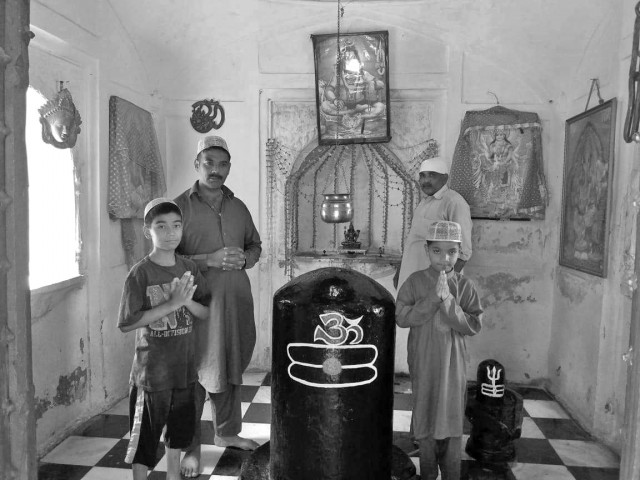Across religious divides: A harmonious haven for Hindus in Khyber-Pakhtunkhwa
In Peshawar, Hindus and Muslims bound in joy & sorrow

Pre-independence, the province of Khyber-Pakhtunkhwa was home to approximately 50,000 Hindu families. But in the years after partition, the number dropped to only 1,200 in Peshawar as people migrated en masse to the other side of the border.
However, for all those who stayed back like Kumar, a sturdy man of 35, the city of Peshawar became a haven where they could continue to enjoy religious freedom and live peacefully alongside the Muslims.
“We’ve always lived in peace with our Muslim neighbours; we participate in their religious festivals and mourn with them in their days of sorrow like they do in our,” shares Kumar, who’s also the former president of Sankar Civil Society and a member of the National Peace Force Committee for Interfaith Harmony (NPFCIH). “Recently, the local Hindu community has also started setting up Sabils in the month of Muharram to honour the sacrifices of Hussain (RA),” he added.
The city of Peshawar today is home to four Hindu tribes – the Balmiks, the Rajputs, the Heer Ratan Raths and the Bhai Joga Singh Gurdwara community. Since partition, the four tribes have lived in harmony with all religious communities, sharing a special rapport with those of the Muslim faith. “There’s a mosque right in front of our temple, so there’s a lot of intermingling of the two faiths and we greet each other regularly,” said Kumar, as his sons frolicked barefoot on the courtyard’s sun-baked concrete floor.
Religious harmony: When spirituality trumps religious boundaries
In recent years, the government of Pakistan has increased its minority quota from two per cent to five per cent, allowing more Hindus to hold senior positions and their children greater chances of quality education. However, despite the government’s new pro-minority policies, the local Hindu community feels there’s more to be done in the regard.
“In Peshawar, there’s this huge issue of crematoriums. The government announced land for it two years ago but it’s still not been handed to the community,” the former president of Sankar Civil Society, told the Express Tribune. “We have no option but to transport our loved ones’ bodies all the way to Attock for cremation rituals, which is becoming increasingly expensive for the poor.“
Another source of grief for Peshawar’s Hindu community is the lack of upkeep and the dilapidated condition of Hindu temples in the city. Kumar feels it is because the local government has failed to regularly assign caretakers, Pandits and Sawa Dars, at these places of worship.
However, Ravi Kumar, a provincial assembly member from K-P, believes the current government is thoroughly facilitating the minorities in every regard. “The land for crematorium is ready and will be handed over in two to four months, while all encroached temples across K-P will be bought back from the locals and provided with all needed facilities,” Kumar told The Express Tribune.
Published in The Express Tribune, October 14th, 2019.













COMMENTS
Comments are moderated and generally will be posted if they are on-topic and not abusive.
For more information, please see our Comments FAQ